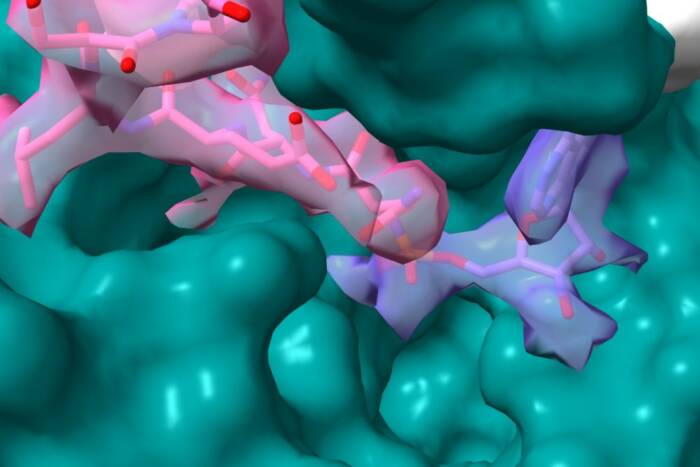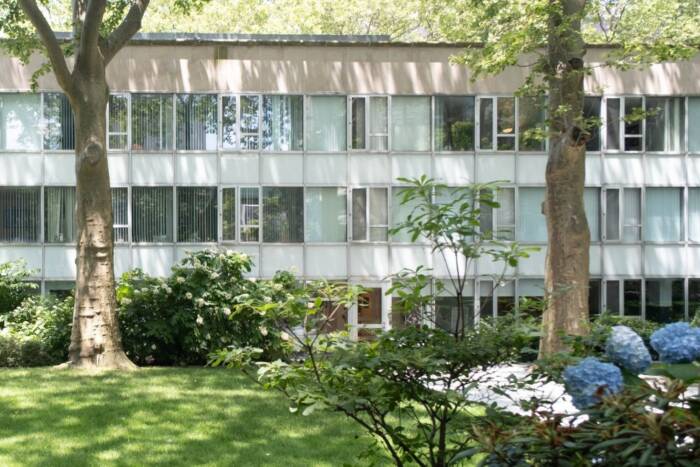Grants office expands its mission under new director
by TALLEY HENNING BROWN
 (opens in new window)In the hypercompetitive, high-stakes world of scientific research grants, Rockefeller’s faculty has a new leg up. This fall, Gila Budescu, most recently from Northwestern University, has joined the university as director of the Office of Sponsored Research and Program Development. The office, which previously focused on grant submissions and compliance, is now taking a broader view of the grant-seeking process, aiming to also explore emerging opportunities at the formative phase and to enable large-scale collaborative initiatives.
(opens in new window)In the hypercompetitive, high-stakes world of scientific research grants, Rockefeller’s faculty has a new leg up. This fall, Gila Budescu, most recently from Northwestern University, has joined the university as director of the Office of Sponsored Research and Program Development. The office, which previously focused on grant submissions and compliance, is now taking a broader view of the grant-seeking process, aiming to also explore emerging opportunities at the formative phase and to enable large-scale collaborative initiatives.
“My initial plans are to build on the expertise and talents of the dedicated staff, to work closely with the researchers, to collaborate with other university offices involved with the research enterprise and to create and streamline tools and services to facilitate joint research and team science in an integrated and dynamic fashion,” says Dr. Budescu.
Dr. Budescu, who grew up in Israel, studied philosophy, psychology and anthropology at the University of North Carolina, Chapel Hill. She then received her Ph.D. in organizational behavior — the study of organizations through economic, sociological, psychological, political science and anthropological methods — from the Technion (Israel Institute of Technology) in Haifa. In her doctoral dissertation she examined the impact of organizational culture on service quality in the service industry, analyzing the encounter between service providers and their clients. “Organizations are embedded in their environment,” Dr. Budescu says. “Functioning as open systems, organizations benefit from the constant value and knowledge exchange (or transactions) with their constituencies and from the evolution of common understandings and aspirations. I believe that sharing goals among all university members and with their stakeholders is a key ingredient to our success.”
Since moving to the United States in 1992, Dr. Budescu’s work has involved the application of this approach within the context of research institutions. She became managing director of a National Institutes of Health resource for computational biology at the University of Illinois, Urbana-Champaign’s Beckman Institute for Advanced Science and Technology. There, among her other responsibilities, she was a coinvestigator on the development of an NIH-funded online research collaboratory for computational biology, and oversaw a development team creating molecular dynamics and graphics software applications. The project sought to provide a comprehensive online framework to facilitate collaborative research and training in macromolecular modeling and bioinformatics. “Working with physicists, chemists, biochemists, computer scientists, software developers, communication scholars and other experts has taught me that success relies on willingness to listen and work together toward shared goals,” she says.
In 2003, Dr. Budescu moved to Northwestern University’s newly established Institute for BioNanotechnology in Medicine, where she developed the administrative infrastructure for collaborative research in the field of bionanomedicine. “In both these institutions,” she says, “the main thing was to be informed by researchers coming from different fields, and then build our operations in a way that would truly respond to and anticipate their heterogeneous needs, taking maximum advantage of available resources to push their work forward. In creating the Program Development effort and revitalizing our present services we want to similarly support Rockefeller researchers in their pursuit of excellence.”
Dr. Budescu will bring many of the ideas and solutions she developed at Urbana-Champaign and Northwestern to Rockefeller. The funding landscape is changing and with it, at least to some extent, the nature of doing science. While the office has been effective in working with the researchers, the proliferation of collaborative research across disciplines and institutions, and the physical distance that entails, requires a continuous reexamination of priorities. Dr. Budescu hopes to more effectively navigate this changing landscape by designing and implementing new support tools and, as importantly, engaging more closely with researchers to assist them in adjusting to the new realities.
“I believe Gila’s plans to meet with every lab head to understand their individual research interests, to keep each investigator informed about relevant funding and to offer her department’s support for new collaborative projects reflect important new directions for this office,” says Vice President for Academic Affairs Michael Young. “Faculty have been asking for help as funding has tightened, and we need to be able to compete more broadly for external funds.”
To kick-start what she plans to make a regular discourse between the office and the laboratories it supports, Dr. Budescu is already meeting with lab heads and administrators. She has also begun revamping the office’s Web site, working with Information Technology to make it easier for researchers to access resources and to simplify electronic submissions.
“It is important to me and to this office to help advance the wonderful and critical work that is being done by our investigators,” she concludes. “We must be responsive and proactive in helping our scientists. The office will work with the researchers and their administrators to as much as possible free our scientists to do more science and less administration.”


